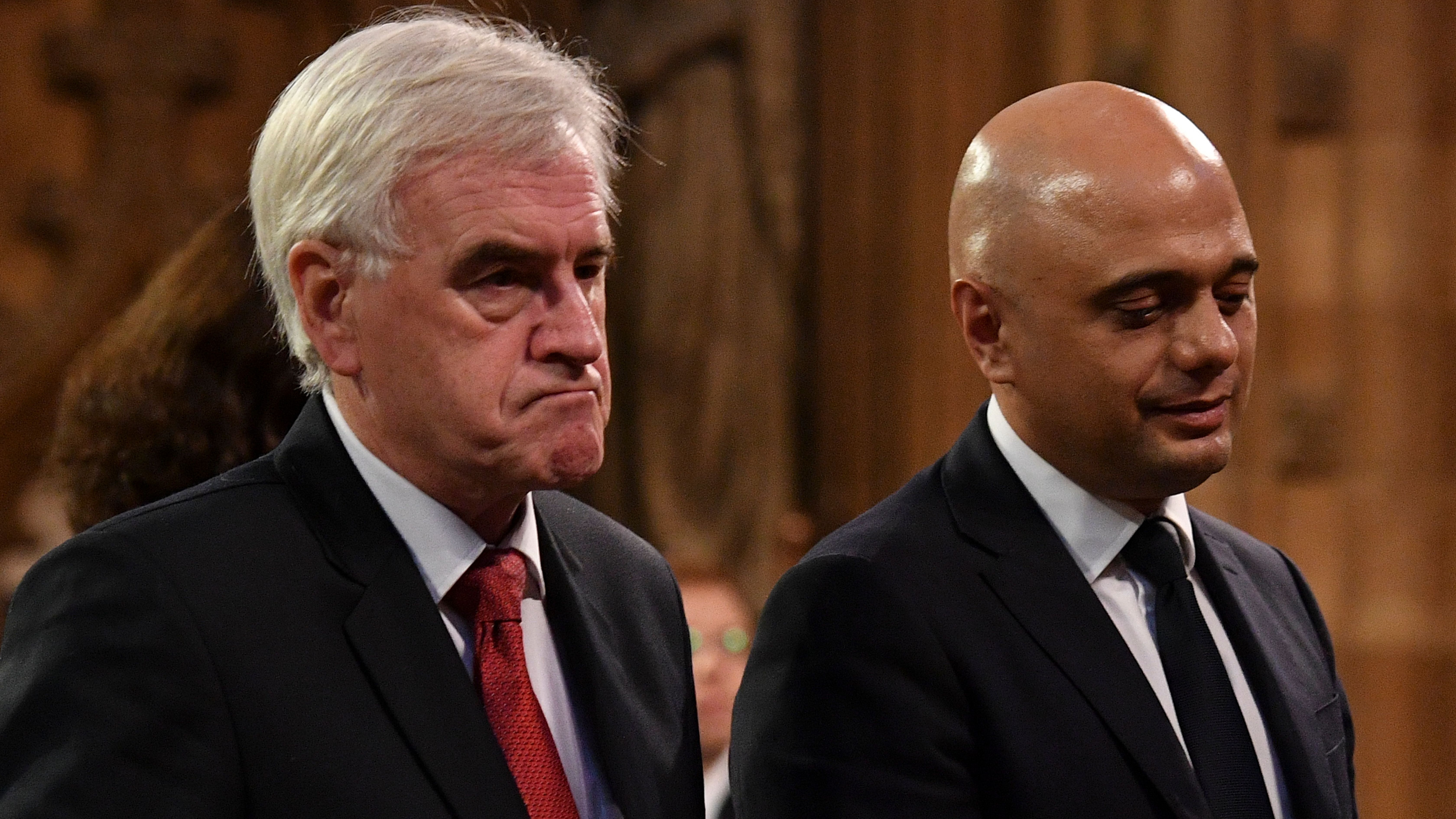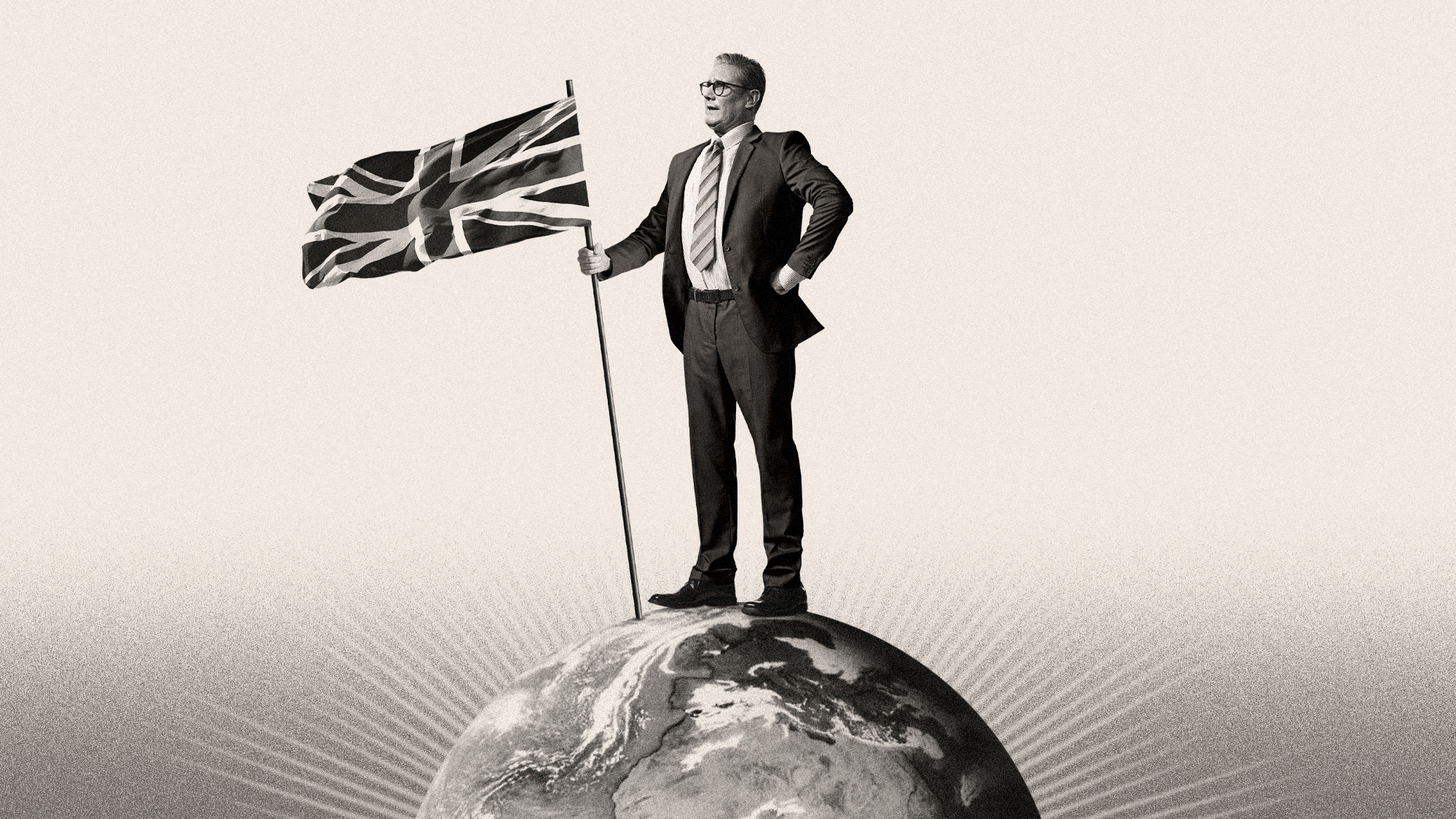General Election 2019: what are the Conservatives’ and Labour’s economic plans?
Javid and McDonnell outline fiscal proposals in rival speeches today

A free daily email with the biggest news stories of the day – and the best features from TheWeek.com
You are now subscribed
Your newsletter sign-up was successful
Labour is promising to invest £150bn in public services in an “irreversible shift” of power to working people if the party wins the December general election.
In a speech in Liverpool today, Labour shadow chancellor John McDonnell promised to “shift the centre of political gravity” by moving Treasury staff out of London in order to ensure all regions benefit from the investment.
Meanwhile, Tory counterpart Sajid Javid dismissed Labour’s plans as “fantasy economics”, during a rival address in Manchester.
The Week
Escape your echo chamber. Get the facts behind the news, plus analysis from multiple perspectives.

Sign up for The Week's Free Newsletters
From our morning news briefing to a weekly Good News Newsletter, get the best of The Week delivered directly to your inbox.
From our morning news briefing to a weekly Good News Newsletter, get the best of The Week delivered directly to your inbox.
McDonnell and Jeremy Corbyn are “like the anti-vaxxers of economic policy”, the chancellor was expected to say, in what The Guardian describes as a sign of the “Tories’ determination to attack Labour on the economy relentlessly over the next five weeks”.
So what are Labour’s economic plans?
McDonnell announced extra money for schools, hospitals, care homes and housing, “on top of existing spending plans to be paid for through borrowing”, says the BBC.
Labour will carry out “investment on a scale never seen before in this country and certainly never seen before in the North and outside of London and the Southeast”, he said, adding: “Power is coming home, back to the people.”
A free daily email with the biggest news stories of the day – and the best features from TheWeek.com
The party is planning to add £100bn of new spending to the £50bn social transformation fund that Labour pledged in 2017.
The combined total will be spent over five years to “repair the social fabric that the Tories have torn apart”, McDonnell said.
Labour has also promised a £250bn green transformation fund to be spent over ten years, in a fresh bid to tackle the climate crisis.
Together, the two pots of money will “deal with the human emergency which the Tories have created, alongside the climate emergency”, according to McDonnell.
Labour has not yet spelled out how it will pay for its policy pledges, but has promised to publish a separate costings document, as it did in 2017.
Earlier this week, the head of the civil service, Sir Mark Sedwill, blocked a Conservative plan to use civil servants to cost Labour’s economic plan. Labour had complained about the “ethics and propriety” of using civil servants for the work in the run-up to the election.
And the Tory plan?
Javid hailed “the end of austerity” when revealing the Government’s spending plans in September.
The chancellor pledged to increase public spending by £13.8bn as part of a one-year spending review, with more money for police, hospitals, and local government.
Since then, Boris Johnson has made an increasing number of dramatic economic pledges.
The prime minister has promised to invest not only in the NHS, but also in digital infrastructure and the transport system in an attempt to stimulate economic growth - and win votes.
NHS trusts will receive £13bn to build and develop hospitals, from a total of £33.9bn that the Government expects to spend on the NHS by 2023.
The Tories have also earmarked £25bn to develop the country’s road network over the next five years; £5bn for broadband; £220m for transport; and a £750m increase in Home Office spending.
Councils will receive £1.5bn for social care, while an additional £432m will go towards tackling climate change.
Spending on schools will increase over three years by £7.1bn, and Javid has promised an extra £2.2bn next year for defence.
On the campaign trail today, the chancellor pledged to invest in education, technology and infrastructure, to help “unleash Britain’s potential”.
But he argued that delivering Brexit is the most important thing for the economy.
“Jeremy Corbyn’s Labour would damage our economy by wasting 2020 having another two referendums on EU membership and Scottish independence - leaving business facing even more uncertainty,” Javid said.
-
 The world’s most romantic hotels
The world’s most romantic hotelsThe Week Recommends Treetop hideaways, secluded villas and a woodland cabin – perfect settings for Valentine’s Day
-
 Democrats push for ICE accountability
Democrats push for ICE accountabilityFeature U.S. citizens shot and violently detained by immigration agents testify at Capitol Hill hearing
-
 The price of sporting glory
The price of sporting gloryFeature The Milan-Cortina Winter Olympics kicked off this week. Will Italy regret playing host?
-
 The high street: Britain’s next political battleground?
The high street: Britain’s next political battleground?In the Spotlight Mass closure of shops and influx of organised crime are fuelling voter anger, and offer an opening for Reform UK
-
 Is a Reform-Tory pact becoming more likely?
Is a Reform-Tory pact becoming more likely?Today’s Big Question Nigel Farage’s party is ahead in the polls but still falls well short of a Commons majority, while Conservatives are still losing MPs to Reform
-
 Taking the low road: why the SNP is still standing strong
Taking the low road: why the SNP is still standing strongTalking Point Party is on track for a fifth consecutive victory in May’s Holyrood election, despite controversies and plummeting support
-
 What difference will the 'historic' UK-Germany treaty make?
What difference will the 'historic' UK-Germany treaty make?Today's Big Question Europe's two biggest economies sign first treaty since WWII, underscoring 'triangle alliance' with France amid growing Russian threat and US distance
-
 Is the G7 still relevant?
Is the G7 still relevant?Talking Point Donald Trump's early departure cast a shadow over this week's meeting of the world's major democracies
-
 Angela Rayner: Labour's next leader?
Angela Rayner: Labour's next leader?Today's Big Question A leaked memo has sparked speculation that the deputy PM is positioning herself as the left-of-centre alternative to Keir Starmer
-
 Is Starmer's plan to send migrants overseas Rwanda 2.0?
Is Starmer's plan to send migrants overseas Rwanda 2.0?Today's Big Question Failed asylum seekers could be removed to Balkan nations under new government plans
-
 Has Starmer put Britain back on the world stage?
Has Starmer put Britain back on the world stage?Talking Point UK takes leading role in Europe on Ukraine and Starmer praised as credible 'bridge' with the US under Trump